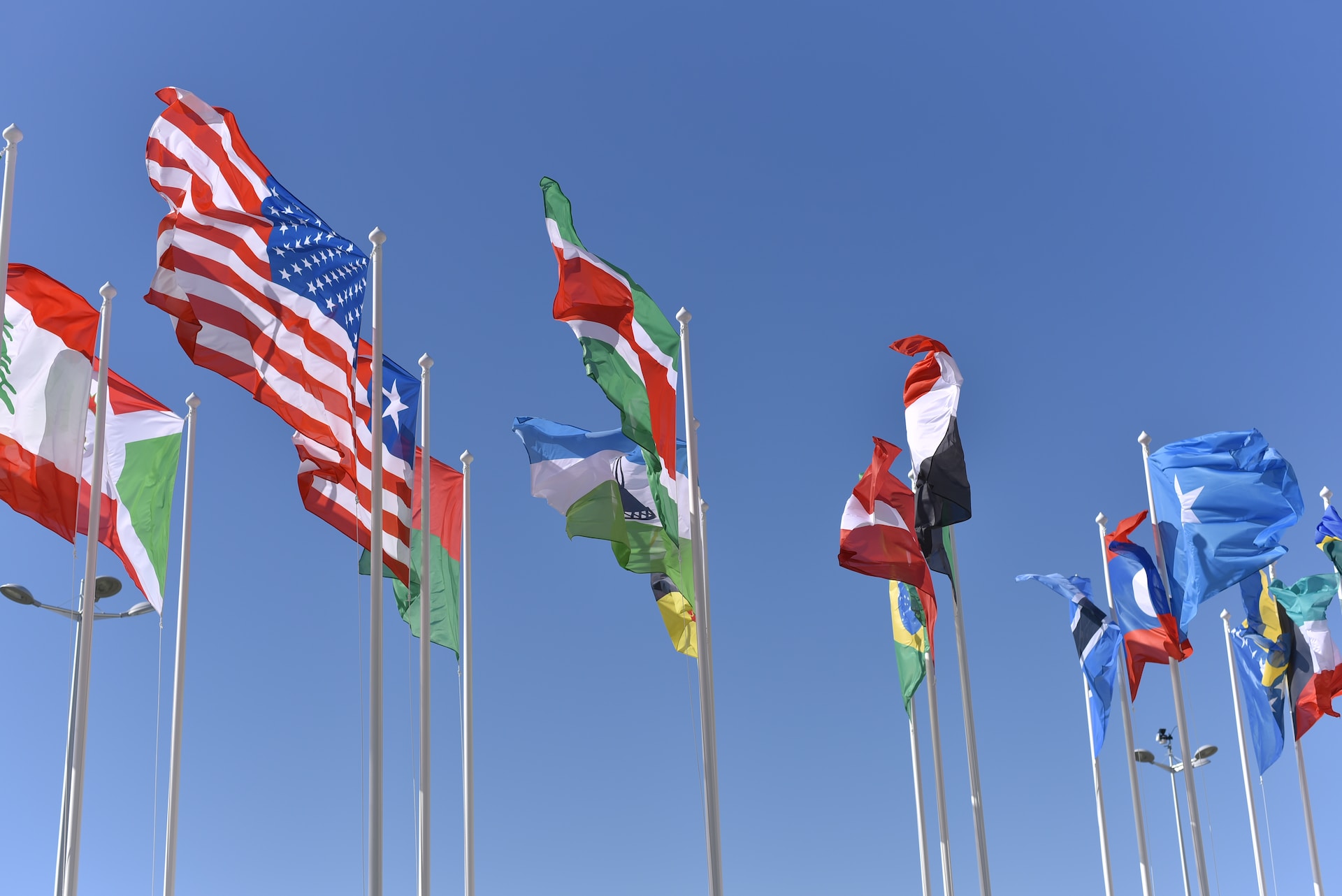The Best 15 Masters in International Affairs

In the realm of global dynamics, international relations – often referred to as global relations – serves as the compass for deciphering the intricate dance between sovereign states and the myriad of organizations that dot the international landscape, spanning IGOs (international governmental organizations) to NGOs (non-governmental organizations). This multidisciplinary domain delves into a spectrum of pivotal themes, ranging from the mechanics of warfare and art of diplomacy to the nuances of foreign policy and the intricacies of global trade.
Aspiring individuals seeking to navigate the labyrinth of international relations embark on a rigorous journey, immersing themselves in a diverse array of disciplines such as political science, political theory, law, and world history. This comprehensive training equips them to grasp the complexities of our world’s interconnectedness and diverse challenges. The potential career paths that unfold upon this foundation are equally expansive, encompassing roles in political consulting, translation, analytical insights, law practice, and diplomatic endeavors.
In the realm of international relations, the pursuit of a master’s degree stands as a threshold to success, arming individuals with the depth of knowledge and analytical acumen required to navigate this multifaceted landscape. This compilation highlights fifteen standout master’s programs in international relations, each offering a distinctive pathway to personal and professional enrichment, poised to foster the next generation of global leaders and change-makers.
1. Master of Arts in International Affairs – Boston University, Boston, MA, USA
This comprehensive two-year program at Boston University prepares students to be active in government, IGOs, and NGOs. The curriculum explores the fundamentals of international relations, covering quantitative research methods, the dynamics of the world economy, and the art of diplomacy and negotiation.
To meet diverse interests, students may specialize in diplomacy, world economics, security studies, international communication, or religion and international relations. A four-year bachelor’s degree or its international equivalent is required for admission. Tuition ranges from $30,526 per semester for full-time students to approximately $2,000 per credit for part-time students.
2. Master of International Affairs – Hertie School, Berlin, Germany
The MIA program at the Hertie School hones students’ knowledge of international policy making and navigating the complexities of the global landscape. The curriculum offers three concentrations: International Security, European Governance, or Human Rights and Global Governance. The program is delivered in English over two years and requires a completed bachelor’s degree or its equivalent. Tuition for the program is €17,250 per year.
3. MSc in Diplomacy and International Affairs – Euclid University, Washington, USA
This unique online master’s degree program, offered by the intergovernmental organization EUCLID, focuses on the dynamic field of diplomacy. It provides students with a flexible choice of courses, including electives such as regional diplomatic affairs, e-government, international and treaty law.
Applicants must have a relevant bachelor’s degree from an accredited institution or equivalent work experience. The cost of the program ranges from 6,000 to 7,000 euros/dollars, with government support considered.
4. Master in International Affairs and Governance — University St. Gallen, St. Gallen, Switzerland
The University of St. Gallen’s interdisciplinary MIA program is structured along three components: thematic, methodological and professional. Covering disciplines such as business administration, law, political science and economics, the program allows students to specialize in areas such as security and conflict, democracy and governance, and data analysis and methods.
The practice-oriented approach involves seminars, case studies, and hands-on training. Admission requires either a bachelor’s degree or a sequential university master’s degree in a relevant discipline. Tuition fees vary: Swiss students pay CHF 1,426 per semester, international students CHF 3,326 per semester.

5. Master of International Affairs – UC San Diego School of Global Policy & Strategy, San Diego, CA, USA
This two-year program, tailored to Asia and the Americas, prepares students for careers in global business, diplomacy, and regional development. The program includes core courses, career-focused projects, and country and regional specializations such as China, Southeast Asia, and Latin America.
The program requires a four-year bachelor’s degree with a minimum GPA of 3.0. Tuition for California residents is $27,674 , and $39,919 for non-California residents.
6. Master of Science in International Affairs – Linnaeus University, Växjö, Sweden
The two-year MIA program prepares students for careers in international organizations, diplomacy, etc. Program modules cover international and European relations, human security, sustainable development and international corruption.
Practical experience includes short and long-term internships and a final independent study. Entry requirements are a bachelor’s degree in social or economic sciences and English language proficiency. The tuition fee for non-EU/EEA/Swiss students is SEK 220,000.
7. Master of Global Affairs – Rice University, Houston, TX, USA
This two-year master’s program offers specializations in international political development, security and political economy. The curriculum includes internships and required coursework.
Admission is based on a bachelor’s degree, critical thinking skills, and communication skills. GRE exam scores are recommended but not required. Tuition for 2022-2023 is $39,000.
8. MA in International Relations and Security – University of Liverpool, Liverpool, UK
This 12-month program emphasizes international relations, academic methods, security discourse, and more. Students may focus on areas such as conflict resolution and political communication. Admission criteria include a 2:1 undergraduate degree in Political Studies or a related discipline. Fees vary, with UK and international students paying £9,900 and £20,350 respectively.
9. MA in International Affairs – The American University of Paris, Paris, France
Students pursuing this master’s degree take courses, internships, fieldwork and case studies. The curriculum covers humanitarian assistance, diplomacy, and NGO management. The program requires a bachelor’s degree or equivalent, GRE scores, and a thesis proposal. Tuition for the 2022-2023 academic year is €33,642 for full-time study.
10. Master of International Relations and Diplomacy – International University in Geneva/University of Plymouth, UK
This unique program allows students to pursue an international degree in International Relations and Diplomacy at IUG and the University of Plymouth. The curriculum prepares students to analyze, develop policy, and navigate the world stage.
Prerequisites for admission include a bachelor’s degree and English language proficiency. The tuition fee for the dual-degree program is CHF 36,400, plus an additional fee of £5,000.
11. MA in Journalism and International Affairs – University of Dublin, Dublin, Ireland
This one-year program, offered by CNN Academy UCD’s Clinton Institute, combines practical training with essential theoretical knowledge. Students master video, audio, digital and social storytelling, with a focus on global issues such as human rights and climate change.
An undergraduate honors degree or extensive work experience is considered for admission. The tuition fee for EU and non-EU students is €25,000.

12. Master of Arts in International Affairs – The George Washington University, Washington D.C., USA
This program, consisting of core courses and specialized tracks, allows for both full-time and part-time study. The Capitol Project and an elective thesis fulfill a variety of career aspirations.
Applicants need a foreign language and economics background. Tuition varies, but is $1,995 for the 2022-2023 academic year.
13. MA in Diplomacy and International Affairs – University of the South Pacific, Suva, Fiji
This master’s program combines well-developed research and writing skills with a focus on law, environment, economics or development studies. The curriculum includes core and elective courses spread over two years of study. Information on tuition fees can be obtained from the university.
14. Master of International Affairs – Columbia University School of International and Public Affairs, New York, USA
This 21-month program is designed for young professionals with experience in the field. The curriculum is flexible and covers international politics, security, human rights, and more. A bachelor’s degree is required for admission, and the GRE/GMAT exam is generally optional. Tuition and fees can vary widely.
15. MA in International Relations – Mente Argentina, Buenos Aires, Argentina
The 15-month Master of Arts in International Relations program in Argentina deepens students’ understanding of international politics, global economics, and security, especially in the context of Latin America. Admission requires a bachelor’s degree and a statement of intent. Tuition is approximately $5,000 and is taught in Spanish.
Conclusion
By embarking on a journey into the field of international relations through one of our top 15 master’s programs, you’ll open the door to a world of limitless possibilities. These programs go beyond traditional education to provide individuals with the knowledge, skills, and connections needed to shape the global landscape. As we conclude our introduction to these remarkable institutions, we are reassured that the field of international relations is more than just a set of diplomatic negotiations or policy decisions; it is a dynamic arena where every individual has the power to contribute to positive change on a global scale.
Whether you are drawn to the intricacies of diplomacy, the nuances of international security, or the complexities of global governance, these master’s programs offer customized paths of specialization. From the bustling streets of New York to the historic halls of Berlin, from the busy classrooms of Paris to the serene landscapes of Sweden, these institutions provide a diverse environment for learning, collaboration, and growth.
The impact of international relations is far-reaching, shaping the interactions of states, organizations, and individuals. As we address the global issues of our time – climate change, human rights, economic development, and others – the importance of well-trained international relations professionals becomes increasingly clear. Graduates of these programs are becoming architects of solutions, mediators of conflict, and advocates for positive change.
As you navigate the myriad of options presented by these top 15 master’s programs, remember that your choice goes beyond academia. It is a step toward becoming a global citizen, leader, and catalyst for change. Whether you are driven by a passion for diplomacy, a thirst for understanding the international economy, or a passion for human rights, the program you choose will be the crucible in which your aspirations will be refined and your potential unlocked.
After all, the path to international relations is not just about getting a degree; it is a vocation that carries a burden of responsibility and promises to be rewarding. So as you embark on this educational odyssey, think not only about the courses you will take, but also about the relationships you will build, the perspectives you will gain, and the impact you will make. Your journey into the complex web of international relations is just beginning, and the world is eagerly awaiting the mark you will leave.


